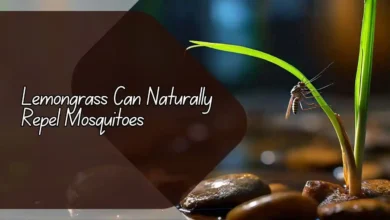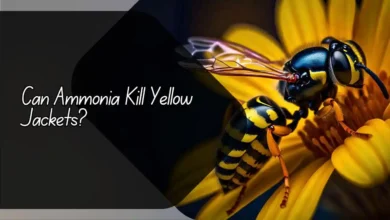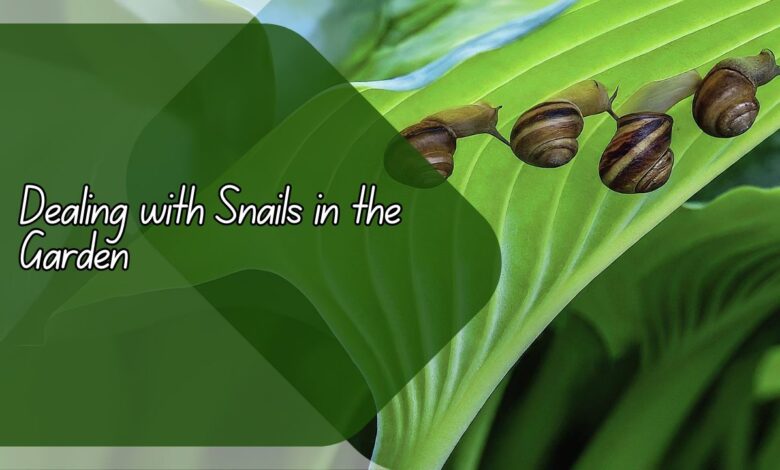
Dealing with Snails in the Garden: How to Protect Your Plants
In this article, we will discuss effective ways to deal with snails in your garden to protect your plants. Snails can wreak havoc on your beloved garden by munching on leaves and stems, ruining all your hard work. By following the tips and strategies outlined below, you can keep snails at bay and ensure your plants thrive.
How do snails damage plants in the garden?
Snails are notorious for their appetite for a wide variety of plants. They can feed on seedlings, young plants, and even mature plants, leaving behind a trail of destruction.
Snails typically consume leaves, stems, flowers, and fruits, causing significant damage to the aesthetics and health of the plants. Their feeding habits can stunt plant growth, reduce yields, and even kill delicate seedlings.
To identify snail damage in your garden, look for irregular holes in leaves, slimy trails on the ground, and missing parts of plants. If left unchecked, snails can quickly multiply and overrun your garden, leading to further devastation.
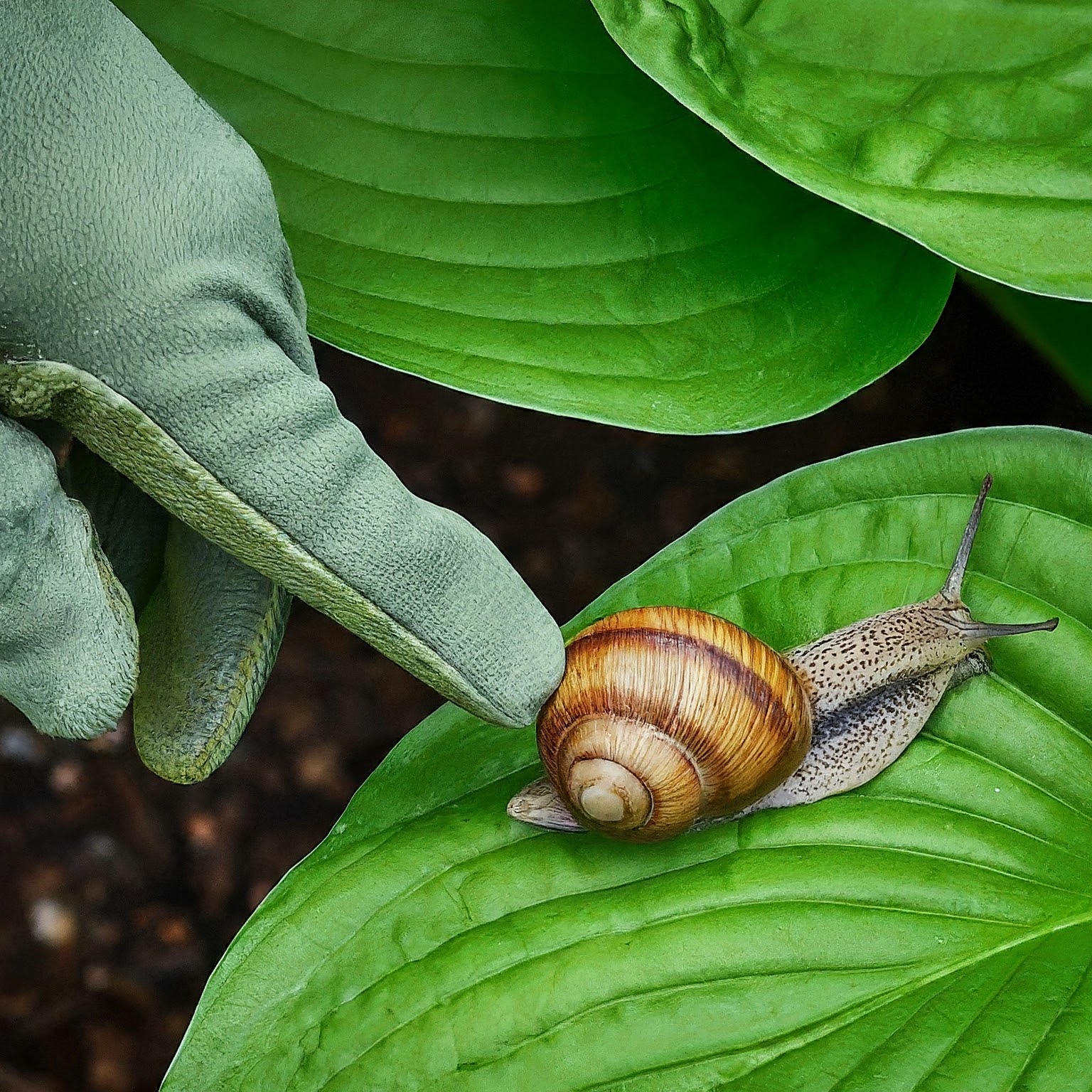
How can I control snail populations in my garden?
There are several effective methods for controlling snail populations in your garden without resorting to harmful chemicals.
One approach is to physically remove snails from your garden by handpicking them in the early morning or evening when they are most active. You can also create barriers around your plants using copper tape or diatomaceous earth to deter snails from reaching them.
Another natural method is to introduce predators of snails, such as ducks, chickens, or certain species of beetles, to your garden.
These animals can help keep snail populations in check by feeding on them. Additionally, you can set up beer traps by burying containers filled with beer in the soil, which will attract and trap snails overnight.
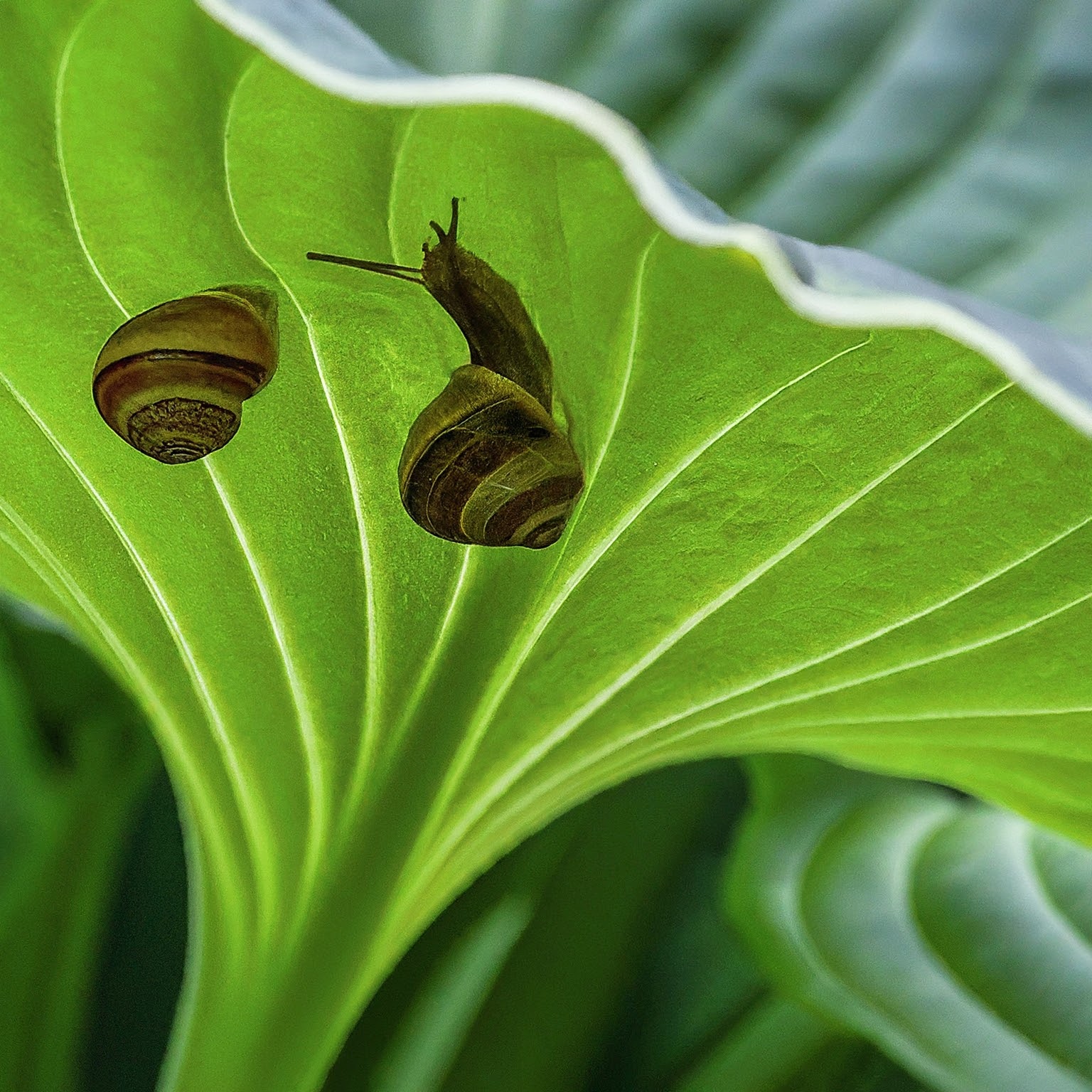
How do I protect specific plants from snails?
Some plants are more susceptible to snail damage than others, so it’s essential to take extra precautions to protect them. For delicate seedlings and young plants, consider using physical barriers like cloches or protective netting to keep snails away. You can also plant snail-resistant varieties of plants that are less appealing to these pests.
For larger plants like trees and shrubs, prune away any low-hanging branches that could provide shelter for snails. Keep the area around your plants clean and tidy to eliminate hiding spots for snails. Regularly inspect your plants for signs of snail damage and take immediate action to address any infestations.
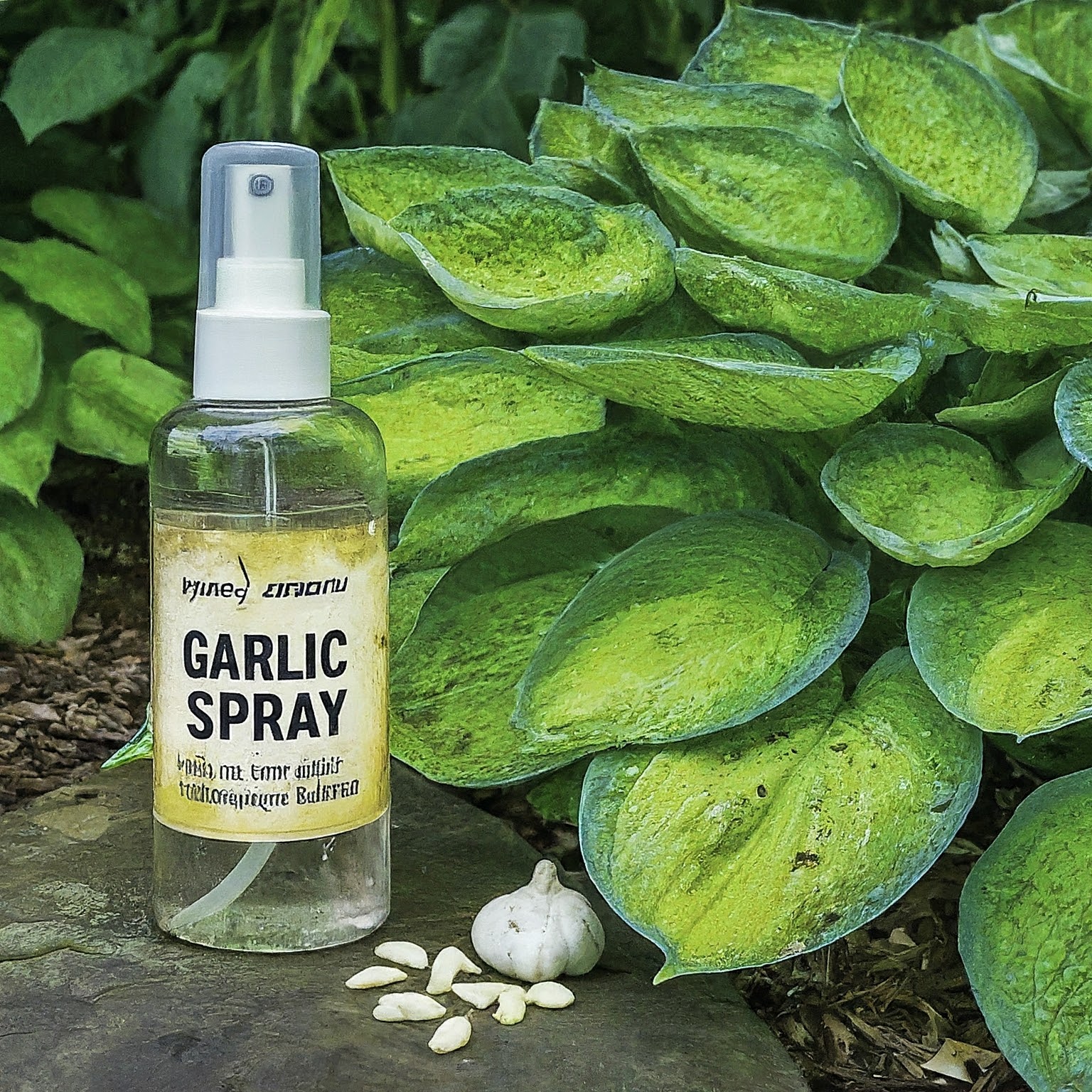
What are some organic remedies for deterring snails?
There are several natural and organic remedies that can help deter snails from your garden without harming the environment or beneficial insects.
One popular method is to sprinkle crushed eggshells, coffee grounds, or coarse sand around your plants, creating a barrier that snails are reluctant to cross. You can also plant aromatic herbs like mint, lavender, or rosemary, which have strong scents that repel snails.
Another effective strategy is to make a homemade garlic spray by blending garlic cloves with water and spraying it on your plants. The pungent smell of garlic is known to repel snails and other pests.
Additionally, you can use a mix of ammonia and water as a natural deterrent, spraying it on the soil around your plants to discourage snails from coming near.
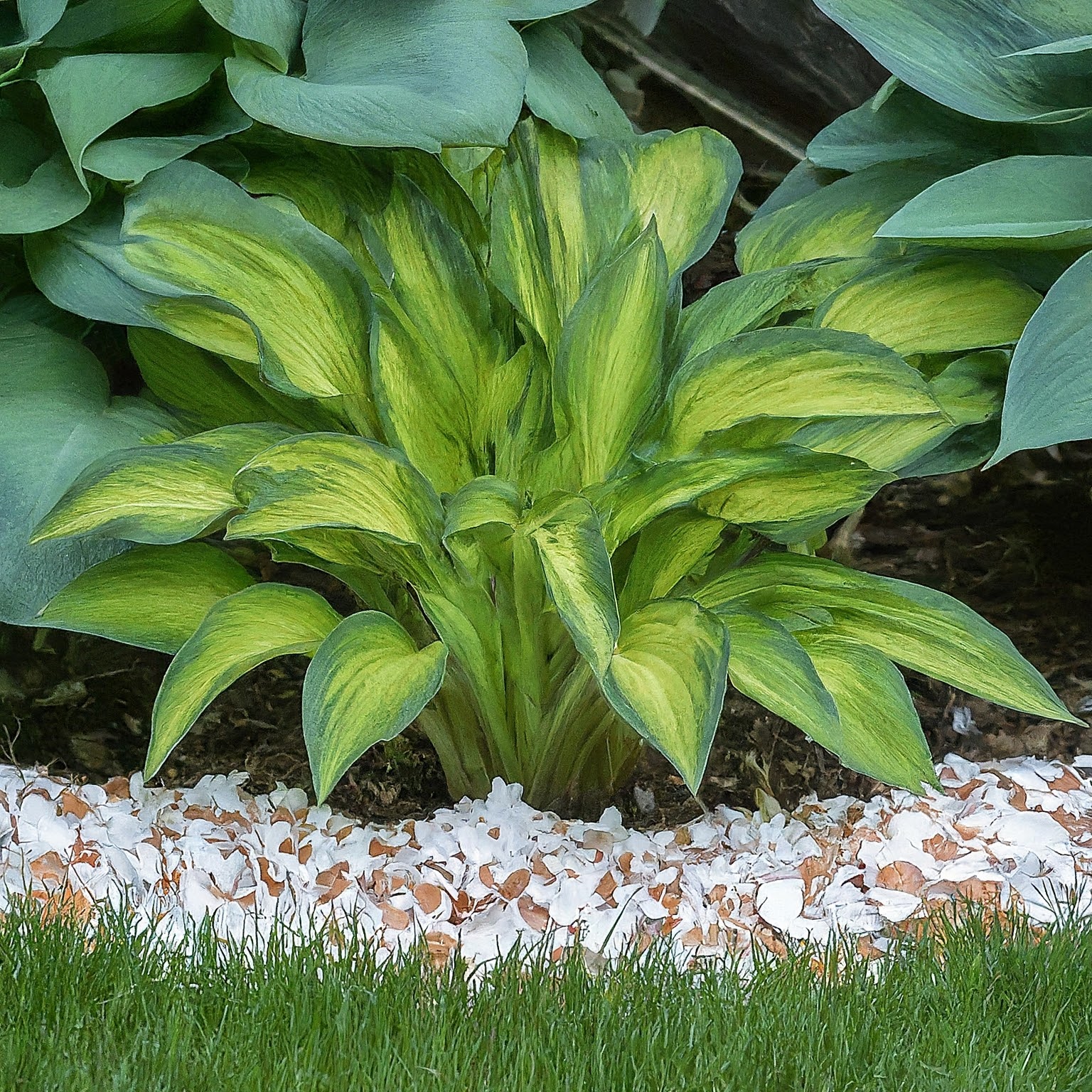
How can I prevent snails from returning to my garden?
Preventing snails from returning to your garden requires ongoing vigilance and maintenance. Regularly inspect your plants for signs of snail activity and take prompt action to remove any snails you find. Keep your garden clean and tidy by removing debris, weeds, and fallen leaves that can provide hiding places for snails.
Consider planting a diverse range of plants that are less attractive to snails, as monocultures are more likely to attract pests. Rotate your crops each season to disrupt the life cycle of snails and prevent them from becoming established in your garden.
By implementing these preventive measures, you can reduce the risk of snail infestations and protect your plants from damage.
Conclusion
In conclusion, dealing with snails in the garden can be a challenging task, but with the right strategies and techniques, you can protect your plants from these pesky pests.
By implementing natural and organic methods for controlling snail populations, protecting specific plants, and deterring snails from returning, you can maintain a healthy and thriving garden.
Remember to stay vigilant, proactive, and environmentally conscious in your approach to snail management to ensure the long-term health and vitality of your garden.
FAQs
Are snails harmful to all plants in the garden?
Snails can feed on a wide variety of plants, but some species may be more susceptible to snail damage than others. It’s essential to monitor your plants for signs of snail activity and take appropriate measures to protect vulnerable species.
Can I use chemical pesticides to control snails in my garden?
While chemical pesticides can be effective at eliminating snails, they can also harm beneficial insects, wildlife, and the environment. It’s recommended to explore natural and organic methods for snail control before resorting to chemical solutions.
Will introducing predators of snails harm other beneficial insects in my garden?
Predators of snails, such as ducks, chickens, or beetles, can help keep snail populations in check without posing a significant threat to other beneficial insects in your garden. It’s essential to research the potential predators and their impact on your garden ecosystem before introducing them.
How often should I inspect my plants for signs of snail damage?
It’s recommended to inspect your plants regularly, at least once a week, for signs of snail activity. Early detection of snails can help you take quick action to prevent further damage and keep your garden healthy.
Can I use a combination of different snail control methods for better results?
Yes, using a combination of physical barriers, natural predators, and organic remedies can enhance the effectiveness of your snail control efforts. Experiment with different methods to find the best solution for your specific garden environment.






